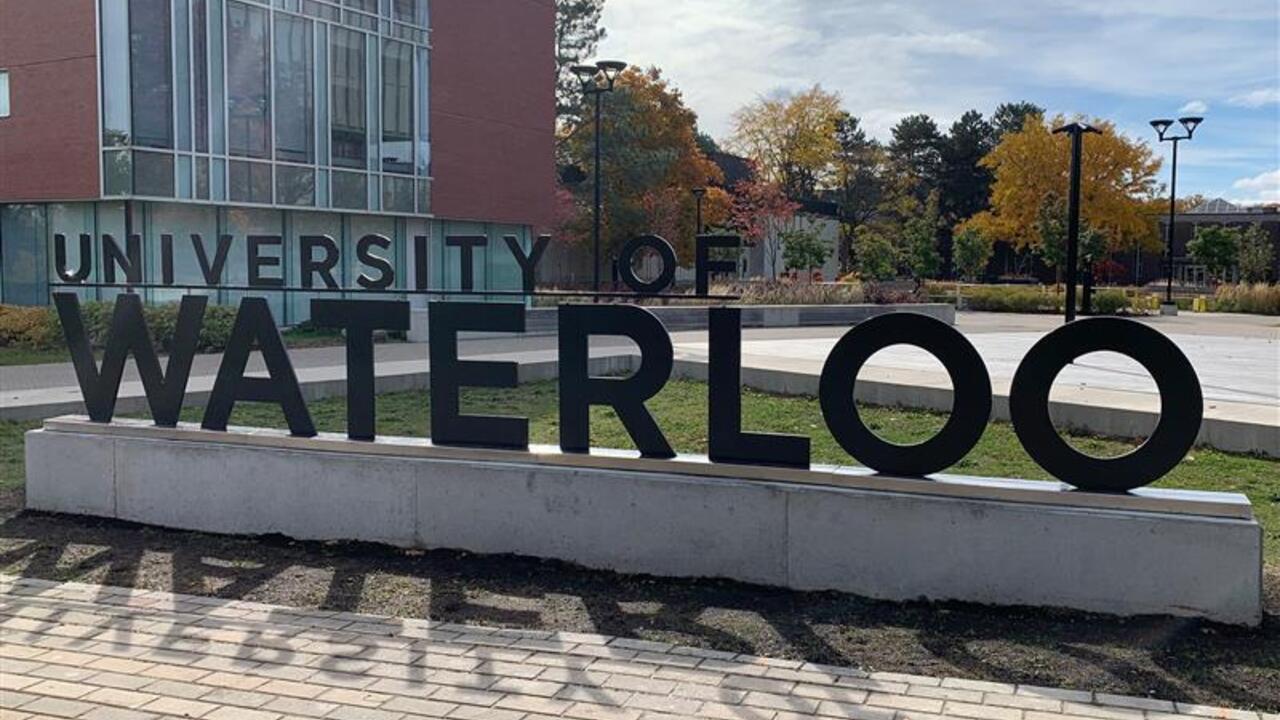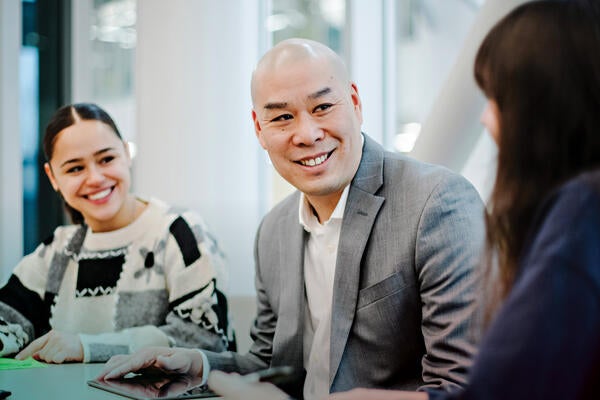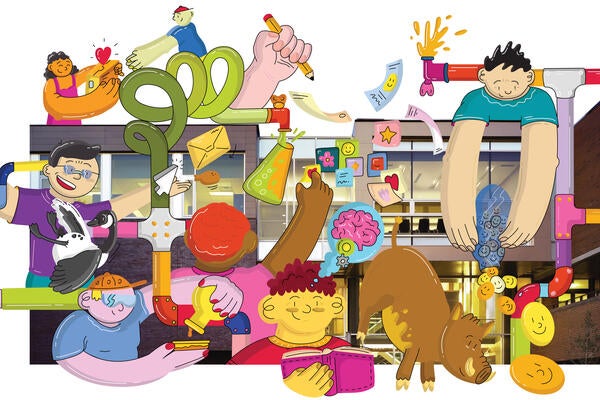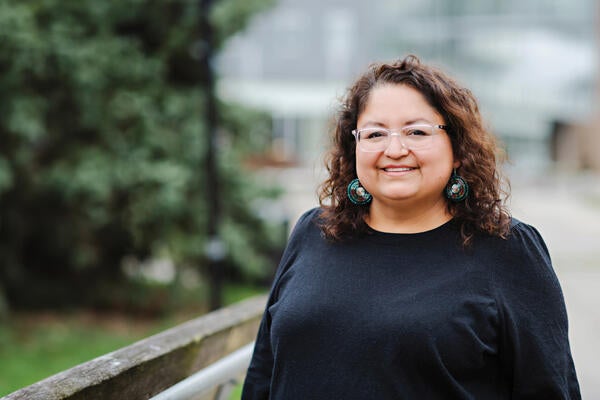
Leading philosopher Ian Hacking gives Waterloo's Hagey Lecture
Internationally acclaimed philosopher Ian Hacking will discuss the human use of mathematics during a prestigious public lecture.

Internationally acclaimed philosopher Ian Hacking will discuss the human use of mathematics during a prestigious public lecture.
By Media RelationsWATERLOO, Ont. (Monday, Sept. 26, 2011) - Internationally acclaimed philosopher Ian Hacking will discuss the human use of mathematics during a prestigious public lecture at the University of Waterloo next week.
Hacking, a leading Canadian scholar in the history and philosophy of science and mathematics, will present Waterloo's annual Hagey Lecture, entitled How Did Mathematics Become Possible? His work, influencing fields as diverse as statistical inference and the emergence of multiple personality disorder, has earned many awards, including the inaugural Killam Prize for Humanities, Canada's most distinguished award for outstanding career achievements.
"The goal of the Hagey Lecture Series is to introduce thought-provoking work to the Waterloo community," said professor John Mielke, chair of the Hagey Lecture committee. "We are very excited to welcome professor Ian Hacking to deliver the 2011 Hagey Lecture. Dr. Hacking’s visit will allow our community to be engaged by an individual who has made significant contributions to several fields of philosophical inguiry."
The Hagey Lecture will be held Monday, Oct. 3 at 8 p.m. in the Humanities Theatre, J. G. Hagey Hall of the Humanities. Admission is free. No tickets are required.
In his talk, Hacking will explore the journey that humanity has taken during its development into a species that observes the natural world through a mathematical lens. He will examine how human beings became able to do mathematics.
Hacking, 75, is an academic and public philosopher who addresses university and general audiences. His work has sought to break down the traditional boundaries between the sciences and the humanities.
On Tuesday, Oct. 4 Hacking will address an arts-oriented student colloquium with a talk entitled Numbers and Race: Don't Ask For the Reference, Ask For the Use. It begins at 1 p.m. in J. G. Hagey Hall of the Humanities, Room 334. At 3:30 p.m., he will give a mathematics-oriented talk, entitled The 20th century Pythagoras: Why Did P.A.M. Dirac Conjecture That the Universe is a Single Very Large Integer? It takes place in Mathematics and Computer building, Room 5158.
In 2004, Hacking was made a Companion of the Order of Canada. Hacking has taught at University of British Columbia, Stanford University, University of Toronto and the Collège de France. Hacking is a university professor emeritus at the University of Toronto.
His books include The Logic of Statistical Inference in 1965 and The Emergence of Probability in 1975. In 2001, he published An Introduction to Probability and Inductive Logic, which has become a widely used logic textbook.
For a lay audience, Hacking's The Taming of Chance, published in 1990, discusses the history of probability and its growing importance in people's daily lives. In Rewriting the Soul: Multiple Personality and the Sciences of Memory, published in 1995, Hacking looks at how people are constituted by the descriptions of acts available to them.
Waterloo's premier invitational public lecture series since 1970, the Hagey Lecture - named after Gerry Hagey, the university's first president - is co-sponsored by the University of Waterloo and the Faculty Association of the University of Waterloo.
Hagey lecturers have distinguished themselves in some scholarly or creative field and their work cuts across traditional disciplines and national boundaries. Previous lecturers have included Nobel laureates in various disciplines, internationally renowned scholars, architects, peace activists and well-known artists.
About Waterloo
The University of Waterloo, located at the heart of Canada's Technology Triangle, is one of Canada's leading comprehensive universities. Waterloo is home to 30,000 full- and part-time undergraduate and graduate students who are dedicated to making the future better and brighter. Waterloo, known for the largest post- secondary co-operative education program in the world, supports enterprising partnerships in learning, research and discovery. For more information about Waterloo, visit www.uwaterloo.ca.
Contacts:
Laura McDonald, communications co-ordinator, faculty association, 519-888-4567 ext. 35158 or laura.mcdonald@uwaterloo.ca
John Morris, Waterloo media relations, 519-888-4435 or john.morris@uwaterloo.ca
Waterloo news release no. 50

Read more
Waterloo graduate Simon Chan identifies three key stages to navigating the non-financial aspects of retirement

Read more
First-year students hone more than their research skills by exploring what it means to be happy

Read more
Robin Jones-Stadelbauer (BA ’12, BA ’22) shares how her experience as an Indigenous student inspires her current leadership role in Waterloo’s Office of Indigenous Relations
The University of Waterloo acknowledges that much of our work takes place on the traditional territory of the Neutral, Anishinaabeg and Haudenosaunee peoples. Our main campus is situated on the Haldimand Tract, the land granted to the Six Nations that includes six miles on each side of the Grand River. Our active work toward reconciliation takes place across our campuses through research, learning, teaching, and community building, and is co-ordinated within the Office of Indigenous Relations.